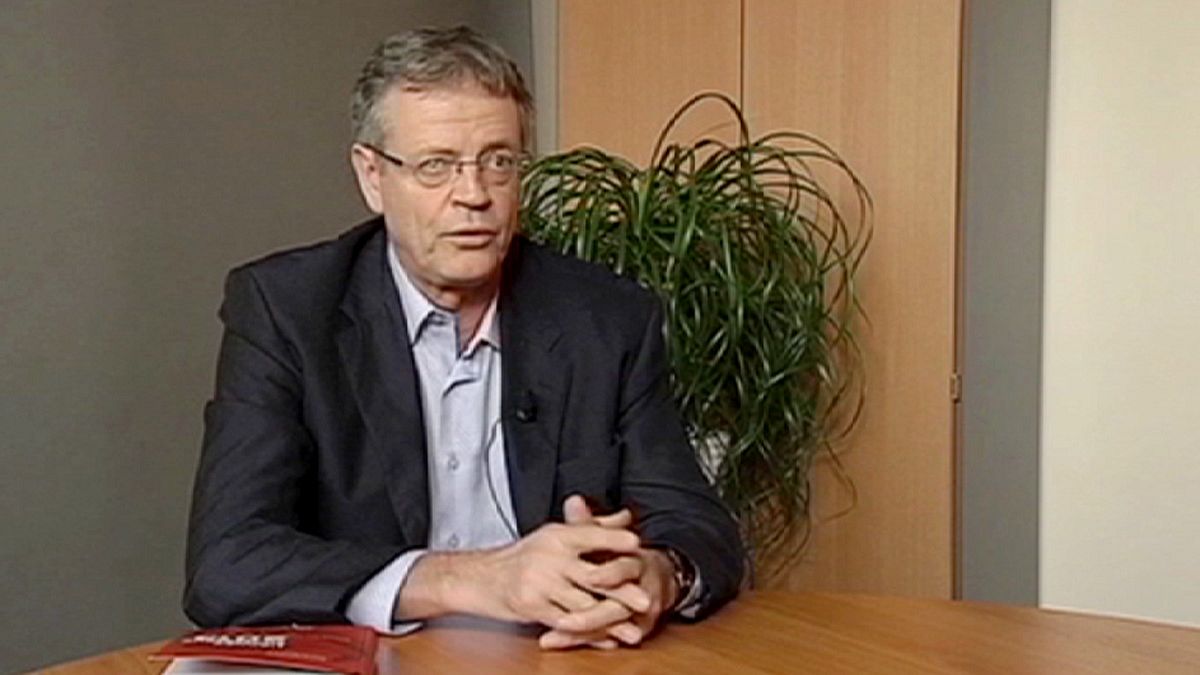Once again the Israeli-Hamas conflict has erupted into violence and the bloodshed looks set to climb over the coming days.
As rockets continue to fly into Israel from the Gaza Strip Israel responds with greater force and the long suffering people of the Gaza Strip are at the epicentre of the latest flare up.
The violence comes as Israel prepares for a general election in January and the Palestinian Authority goes to New York to seek UN observer status.
Hamas and Israel want Fatah to fail at the UN and the fog of a limited war to change the international agenda.
The role of Egypt in all this is of interest. The state is still too weak to rip up the 1979 peace treaty with Israel, though Islamist President Mohamed Mursi called the Israeli attacks “unacceptable” and has sent his Prime Minister to visit Gaza on Friday.
The international community will just hope that the attacks just stop and soon.
Euronews correspondent Giovanni Magi spoke to Pascal Boniface, director of the Institute of International and Strategic Relations
in Paris.
euronews:
“What is behind this latest eruption of violence in Gaza? Is it the Palestinian bid for observer status at the UN or the upcoming Israeli election?”
Pascal Boniface:
“There is a strategic context to this flare up. On the one hand the tension between Israel and Syria and President Assad’s isolation following the Doha agreement. The fact that Syrian rockets landed in Israel spooked Tel Aviv.
There is also a calendar that is linked to the Israeli elections in January, an Israeli leader who is seen to be strong on security will pick up votes.
Hamas is insecure about Palestine gaining a vote in the UN, which may well happen, we still don’t know how Europe will react, but as there is no veto at the General Assembly. Palestine may well win a majority, which will be bad for Hamas.”
euronews:
“Do you see a repeat of the 2008-2009 conflict with the Israeli military launching full scale attacks with dire consequences for the civilian population?”
Pascal Boniface:
“That cannot be excluded, but Israel will face international condemnation at a time when Israel considers Iran to be the number one threat in the region, not the Palestinians.
A ground invasion of Gaza will be difficult because Hamas has stockpiled anti-tank missiles since 2008.
It could prove a trap both on a political and military level for the IDF as a media war against Israel kicks in as more Palestinians die. This will influence any UN vote.”
euronews:
“Who benefits from this permanent conflict, Israel or Hamas?”
Pascal Boniface:
“ It benefits the sitting Likud administration they can show that they are in control, they protect the state and the military force acts as a political force. There are many elements, some may say that these clashes elevate Hamas to threat number one. Then there is the general Israeli Palestinian conflict, and the internal political situation in Israel and the divisions between Hamas and the Palestinian Authority.”
euronews:
“Could the conflict damage the already fragile relationship between Israel and Egypt.”
Pascal Boniface:
“There will be no war between Egypt and Israel. Egypt will not go to war with Israel. There may well be the will but not the means. Israel has far more military hardware than Egypt and if Egypt adopted a military stance they would be defeated and humiliated and no state can take that risk.
Still diplomatic relations will suffer, but there will be no war simply because Israel has the power and if Egypt joins the conflict they will loose 1.3 billion dollars a year in US military aid.”


